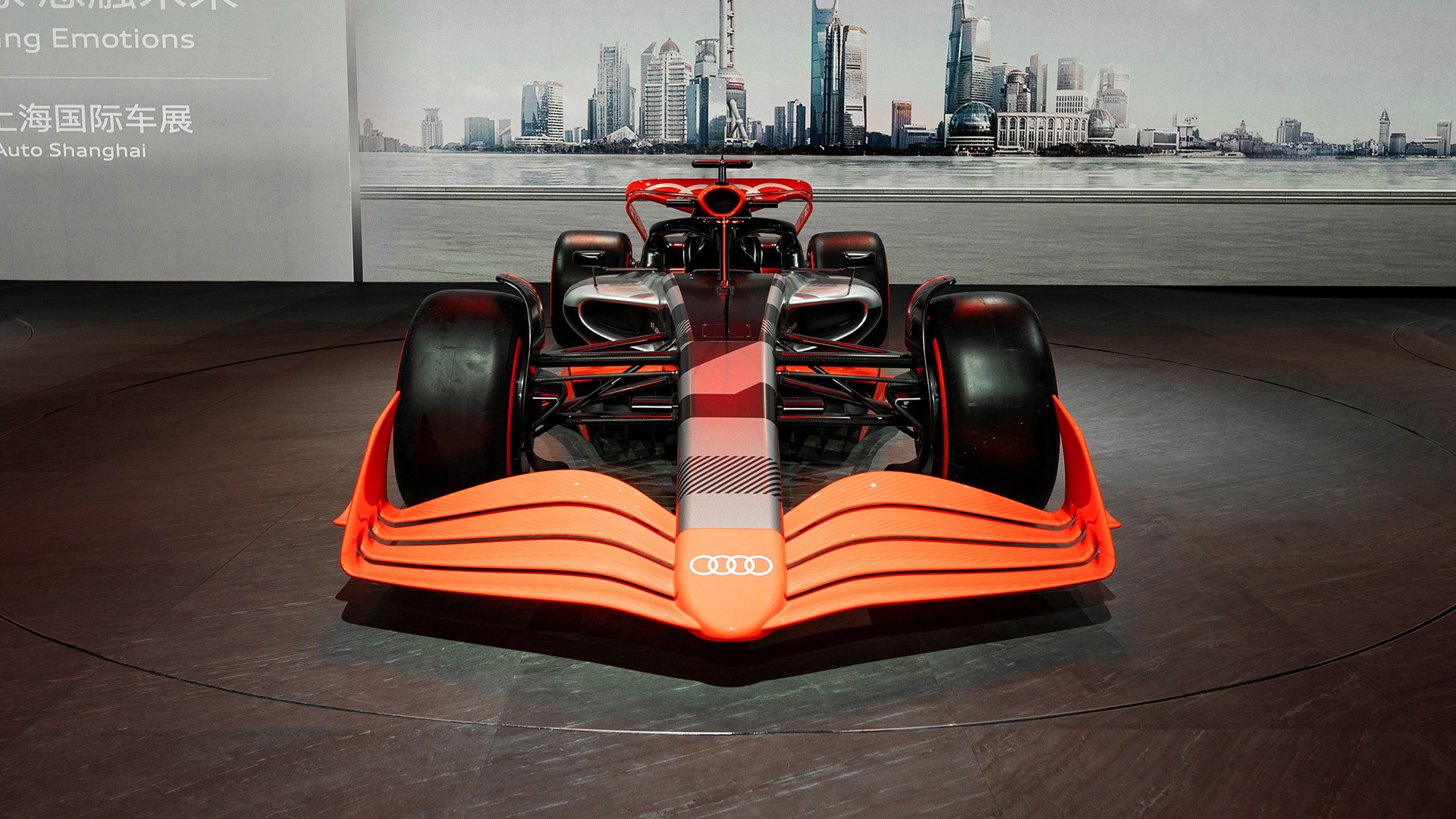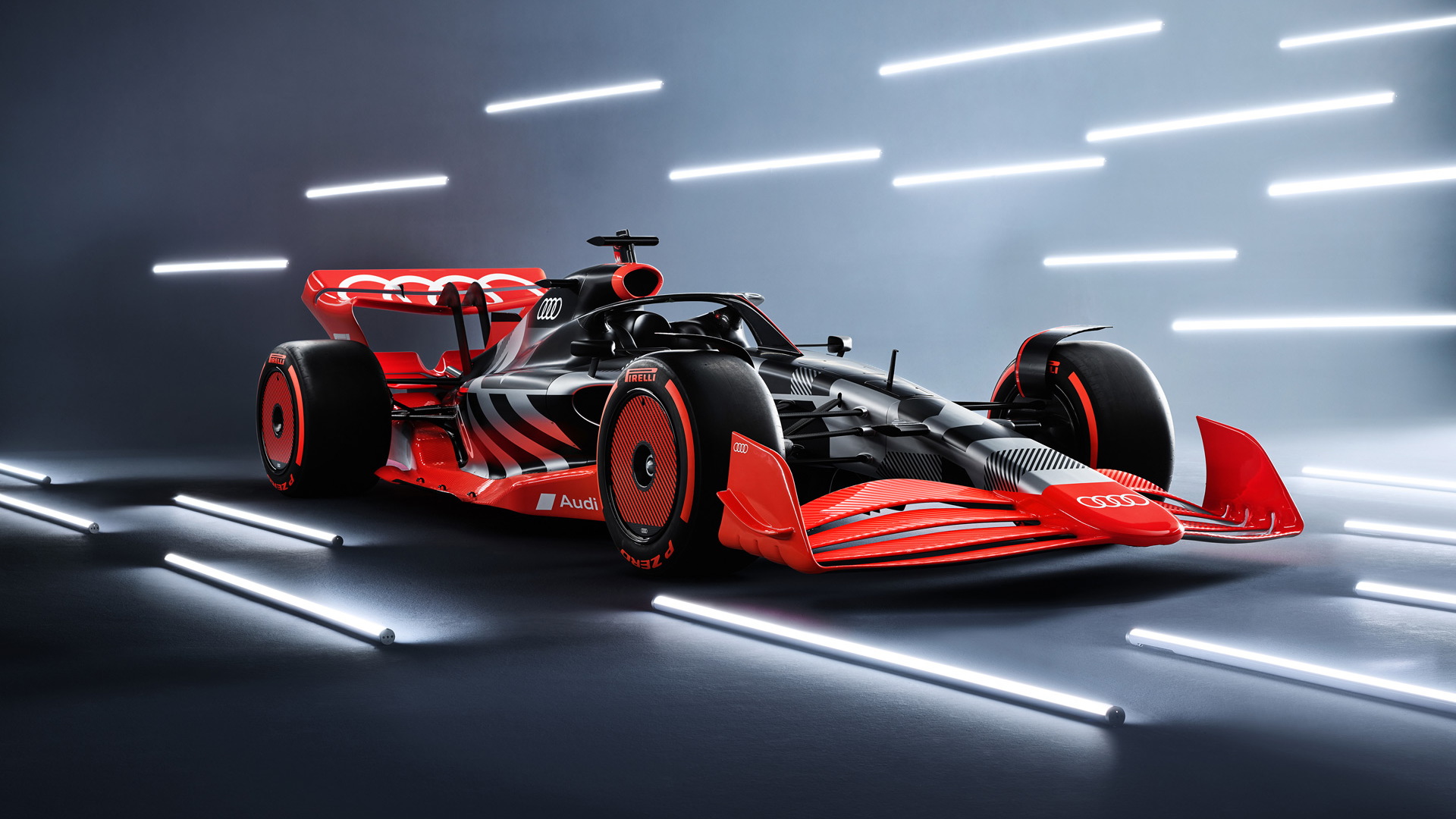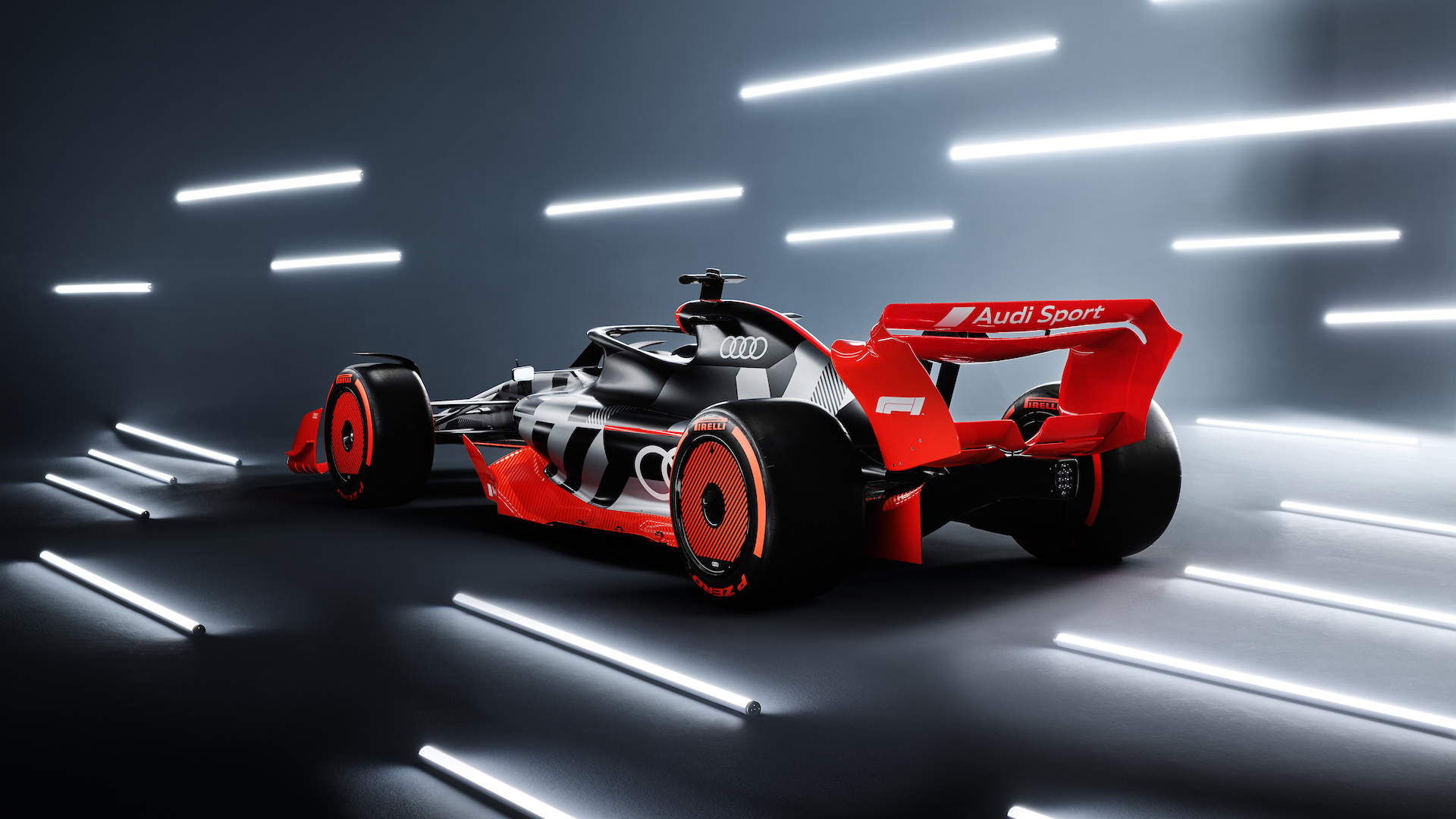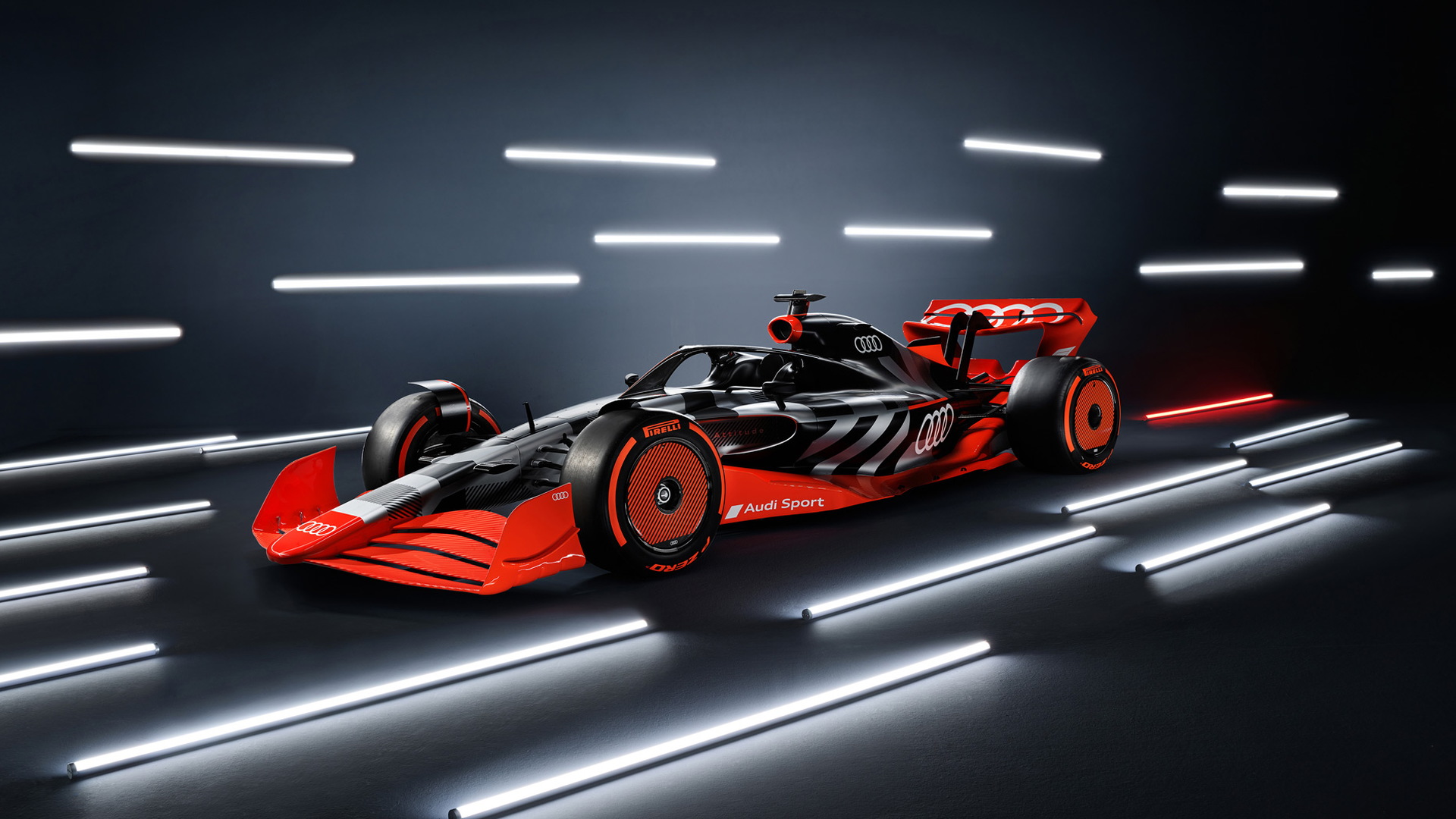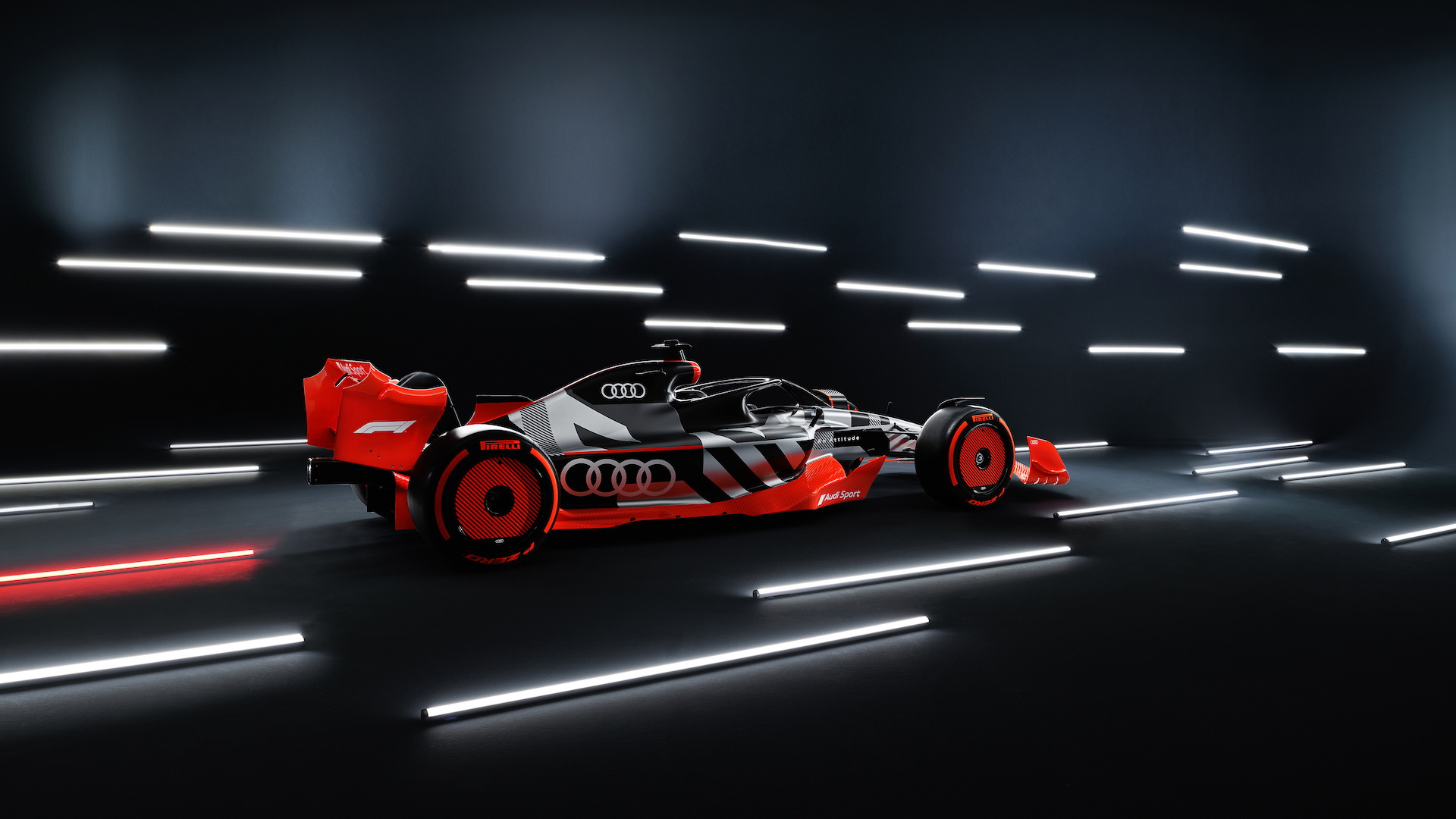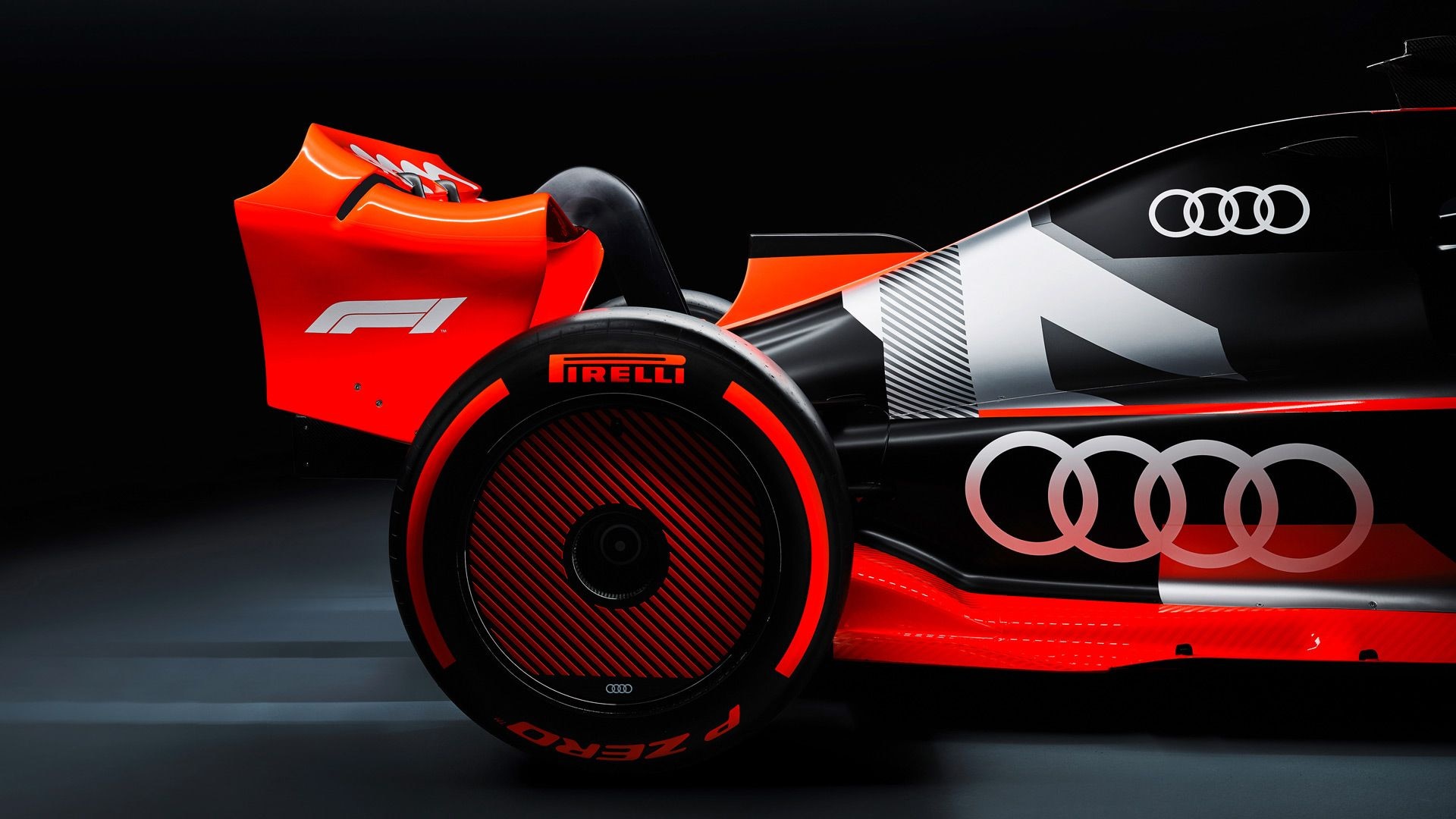Audi last summer confirmed plans to enter Formula 1 both as a constructor and power unit supplier by the 2026 season, and at the 2023 Shanghai auto show earlier this month the automaker provided an update on its progress.
Current F1 team Sauber, which Audi bought a stake in at the start of 2023, will serve as Audi's factory team and handle both construction of the race cars as well as race operations at its current base in Hinwil, Switzerland. Sauber has its own wind tunnel located at the site.
Audi has established the new company Audi Formula Racing GmbH, based in Neuburg an der Donau, Germany, to oversee the F1 program. The company already has 260 specialist staff and will expand this to more than 300 by the end of the year, Audi said.
The power unit's development and construction are being handled by Audi Formula Racing. According to Oliver Hoffman, Audi's R&D chief, the development of the power unit is currently in the concept phase, where the foundation of the design is being formed. Key areas being looked at include materials, manufacturing technologies, and energy management.
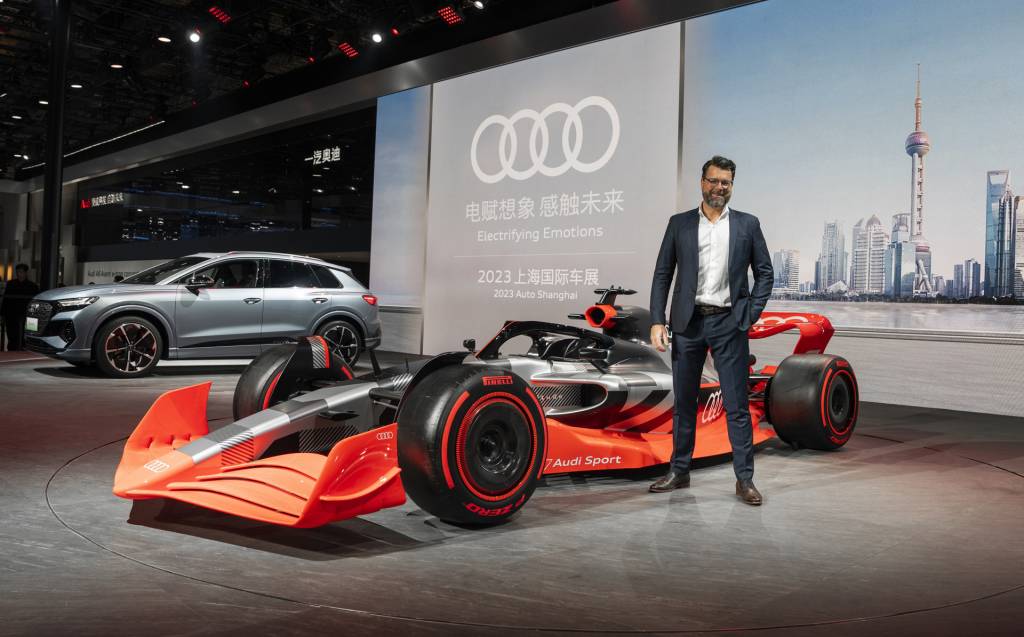
Oliver Hoffmann
A single-cylinder engine was built last year for test bench setup and validation of measuring instruments. The first complete power unit, consisting of the combustion engine, electric motor, battery, and electronic control unit, is scheduled to run on the test bench before the end of the year. Additional test rigs will also be added to the site later in the year, and Audi said it will also upgrade its current dynamic driving simulator at the Neuburg site to bring it up to F1 standards.
Audi's power unit is being designed to meet new rules that will be introduced to F1 in 2026. The rules call for a turbo 1.6-liter V-6 in a hybrid configuration, just like the current setup. However, the new power unit will be simpler due to the elimination of the MGU-H, the electric motor-generator that recovers exhaust energy via the turbocharger. The MGU-K unit, which recovers energy from the rear brakes just like a conventional hybrid, will remain and will deploy more power.
The rules call for an increase in electrical power to 469 hp from the current 160 hp. Peak output of the system will still be more than 1,000 hp, though overall fuel usage during a race should drop from about 220 pounds today to 154 pounds in 2026. Another key change will be the use of 100% carbon-neutral e-fuel, which F1 is developing with its partners.
The new power unit rules together with budget caps introduced by F1 a few years ago were important factors for Audi's entry into F1, Audi said. The sport's growing appeal, particularly in the U.S. and China, was also important, according to the automaker.
